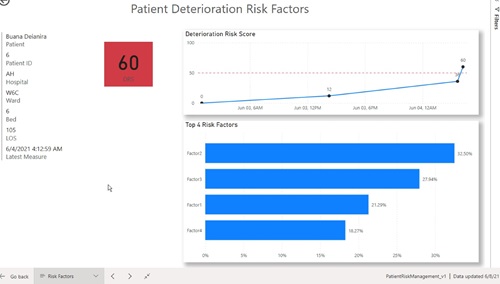Scientists from CSIRO, Australia’s national science agency, have led a study to develop a machine learning tool which provides an early warning to medical professionals of a patient’s deteriorating condition.
The study, published in Nature: Scientific Reports, in collaboration with Princess Alexandra Hospital and Metro South Health, showed the early warning deterioration alerts can be set to monitor patients two to eight hours before they are triggered by current clinical criteria.
CSIRO scientist Dr Sankalp Khanna said medical professionals could now use the data contained in electronic medical records (EMRs) to predict when a patient’s vital signs such as blood pressure or temperature are likely to reach a danger zone, triggering patient decline.
With the massive amount of data in the EMR comes the potential for better patient care. For example, the information from the data can be used to help medical staff make decisions that can prevent a patient’s deterioration from adverse events and acute illness. Up until recently, and still in some hospitals, patient data was not available electronically, restricting the capacity to develop digital tools to benefit from it.
"Until now there hasn’t been a way to harness all the data in the EMR to predict patient health. This new tool has the potential to transform the day-to-day functioning of health systems, Dr Khanna said.
"When applied to a test cohort of 18,648 patient records, the tool achieved 100 percent sensitivity for prediction windows two to eight hours in advance for patients that were identified at 95 percent, 85 percent and 70 percent risk of deterioration.
“Our scientists hold expertise in transforming data into useable information to help guide clinical choices. The new tool also sets out the reasons for the warning, which can guide the choice of intervention.
“The alerts warn medical staff when a patient is at risk of deterioration leading to possible death, cardiac arrest, or unplanned admission to ICU. The tool can notify of the need for clinical intervention.
“Clinical decision support tools such as these are a pre-emptive solution that can provide medical staff with an opportunity to intervene earlier to prevent adverse patient outcomes,” he said.
Intensive Care Unit Staff Specialist at Princess Alexandra Hospital’s intensive care unit, Dr David Cook said, this work is a genuinely useful, and implementable way of managing unexpected patient deterioration across a large hospital.
"It is done without process duplication, nor does it interfere with established best practice systems which are used to recognise sick and deteriorating ward patients," Dr Cook said.
CSIRO scientists are now in discussion with partners for a clinical trial to explore how the alerts work and how they can be best implemented into clinical workflows.

